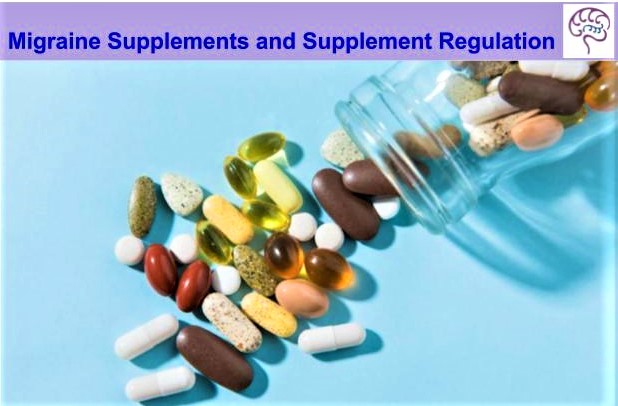
There has been a growing interest and demand for “natural treatments” such as vitamins to help treat migraine. The most commonly recommended vitamins for migraine include Magnesium, Riboflavin (Vitamin B2), and Coenzyme Q10 (CoQ10). Multiple statistically significant studies display that these vitamins reduce the frequency and intensity of migraines. Doses for each vitamin include 400 to 500 mg of magnesium, 400 milligrams of vitamin B-2 and 100 mg of CoQ10.
Cautions with supplements:
· Rules for manufacturing and distributing dietary supplements are less strict in comparison to prescription or over-the-counter drugs.
· Dietary supplements only undergo post-market regulation. The FDA is not authorized to review dietary supplements for safety and effectiveness before they are marketed, only after the product is on the market can the FDA take action against adulterated or misbranded dietary supplements only after the product is on the market.
· Dietary supplements may interact with other medications or be contraindicated with certain medical conditions.
· What’s on the label may not be what’s in the product. For example, prescription drugs have been found in products being sold as dietary supplements.
· Supplements with false claims. Many times there is no supporting research or contraindicating research results for supplement use with certain medical conditions.
Consumer Strategies:
· Read the label carefully. In many cases, ingredients that are banned or harmful are listed in the label.
· Check to see if your supplements have gone through third party testing. Many supplement products bear logos demonstrating that they have voluntarily enrolled in third-party testing programs.
– Caroline Pruski, NP
Visit Nervana Neurospa and Nervana Neurology & Wellness at our new Brooklyn location!
